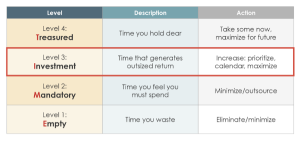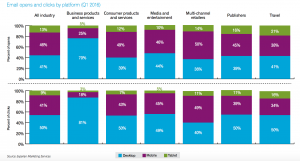It is the best of times to be a job seeker; it is the worst of times to be a job seeker.

It is a time of near record high vacancy rates. It is a time of near record high inflation. It is the age of the Great Resignation. It is the age of another Great Recession. It is the season of mass hiring. It is the season of mass firing. It is the season to switch jobs. It is the season to stay the course.
As the job market continues to send opposing signals to job seekers, many are struggling to figure out whether we’re in the middle of a tight talent market or if we’re on the brink of a recession.
“Both of these can be true at the same time,” says Toni Frana, a career services manager at FlexJobs. “Between the Great Resignation, the Great Reshuffle, and now with inflation and recession fears taking hold, it’s giving job seekers a lot to think about as they make career decisions.”
According to a recent survey conducted by FlexJobs, these seemingly contrary indicators are already impacting how employees and candidates navigate their careers, with 80% saying inflation is having an effect on those decisions, and 73% taking the possibility of a recession into consideration.
Furthermore, 43% say it has taken more time to find a job in the last year than in years prior, and about a quarter have either been laid off or know someone who has lost their job since April of this year.
At the same time, however, there are indications that the Great Resignation and widespread talent shortages are far from over. In fact, the latest Bureau of Labor Statistics data suggests resignation rates remain on par with those seen at the height of the Great Resignation last year, with 4.2 million people calling it quits in July 2022. The data also shows 11.2 million job vacancies that month, meaning there are still nearly two jobs for every available worker. (Though, of course, that doesn’t mean available roles are ones job seekers want.)
Here’s what experts say candidates should know about looking for a job during this unusual time.
Take Stock
Those who are currently employed can help ease recession fears and better prepare for whatever the future holds by conducting an inventory of their skills, their networks, their industry, and their employer, Frana says, adding, “It’s a good time to take stock of your network and networking opportunities, and not wait to reach out to those people until after you’ve been laid off or made a move.”
Even those who feel secure in their roles should take some time to update their résumés and make note of their recent accomplishments, advises Jenny Logullo, a career coach and founder of Workplace Worth Academy.
“Once you get laid off you’ll have limited access to your computer, your projects, all that stuff,” Logullo says. “So it’s good to take inventory of skills, strengths, and recent achievements. Documenting that can relieve that feeling of uncertainty.”
Do Your Homework
Logullo also suggests, particularly for people who are concerned about the effects of inflation or a potential recession on their careers, taking the time to investigate just how exposed they are to changing market conditions.
“You should be mindful of what industries are hit hard during hard economic circumstances; we know retail gets pretty slammed, hospitality too, and innovation often gets a back seat,” she says. “Understanding your industry and where it’s at is important—but also your company, and even your department.”
Your employer’s size and financial structure should also be taken into consideration, Logullo says, as larger and better-funded companies often have the resources to withstand recessions. Furthermore, she contends that departments that focus on “meat and potatoes” business objectives—or deliver core products and services—are typically more insulated from changing market conditions.
Beware of Opportunities that Seem too Good to be True
When competition for talent started heating up, many employers reacted by offering compensation packages that were above market rate. As inflation and recession fears continue to mount, however, some have had to reverse those decisions, making it a risky time to accept an offer that is overly generous, according to Shayla Thurlow, vice president of people and talent acquisition for online career platform the Muse.
“Some of those companies who were offering way above market nine months ago to get people in the door have since experienced massive rounds of layoffs and cost-cutting measures,” Thurlow says. “Job seekers in today’s market need to ask themselves, Is this too good to be true? and Is the grass really greener on the other side?”
Given the uncertainty in the job market, Thurlow adds, candidates need to be asking tough questions of prospective employers, too, especially before accepting an offer.
“How is the business doing? How did the business do during COVID? Have you done layoffs? Do you believe that there will be some layoffs in the future? If we experience an economic downturn, is this role something you believe will still be critical to the company’s success?” are all pertinent in the current climate, according to Thurlow.
Be an Above-Average Contributor
While the industry, department, and role can dictate how one is likely to fare in the event of a sudden change in market conditions, the best way to mitigate the risks and maximize the opportunities of this unique moment is to be a standout employee.
“If you’re good, your prospects are quite wonderful, but if you’re average you might find yourself on the other side of the Great Resignation—you might be part of the Great Layoff,” says Johnny C. Taylor Jr., CEO of the Society for Human Resource Management.
With experience, though, come expectations, and companies may want to see results on an accelerated timeline. “With an experienced hire I pay you more because I expect you to hit the ground running,” Taylor says. “They had better deliver right away, because if they don’t, those are the ones who get taken out the fastest in a recession, because they’re expensive.”
His advice for students and recent graduates is to find something to master, and strive to become an above-average contributor in whatever they pursue.
“In the depths of 2008, because things were so bad, companies were looking for superstars, and paying premiums for them, because the only way they could hope to win the game was to get the absolute best talent,” Taylor says. “Stars never experience a recession—they just don’t—so you’ve got to get really good at something.”
Editor’s Note: Shayla Thurlow’s name was corrected.
(27)
Report Post





